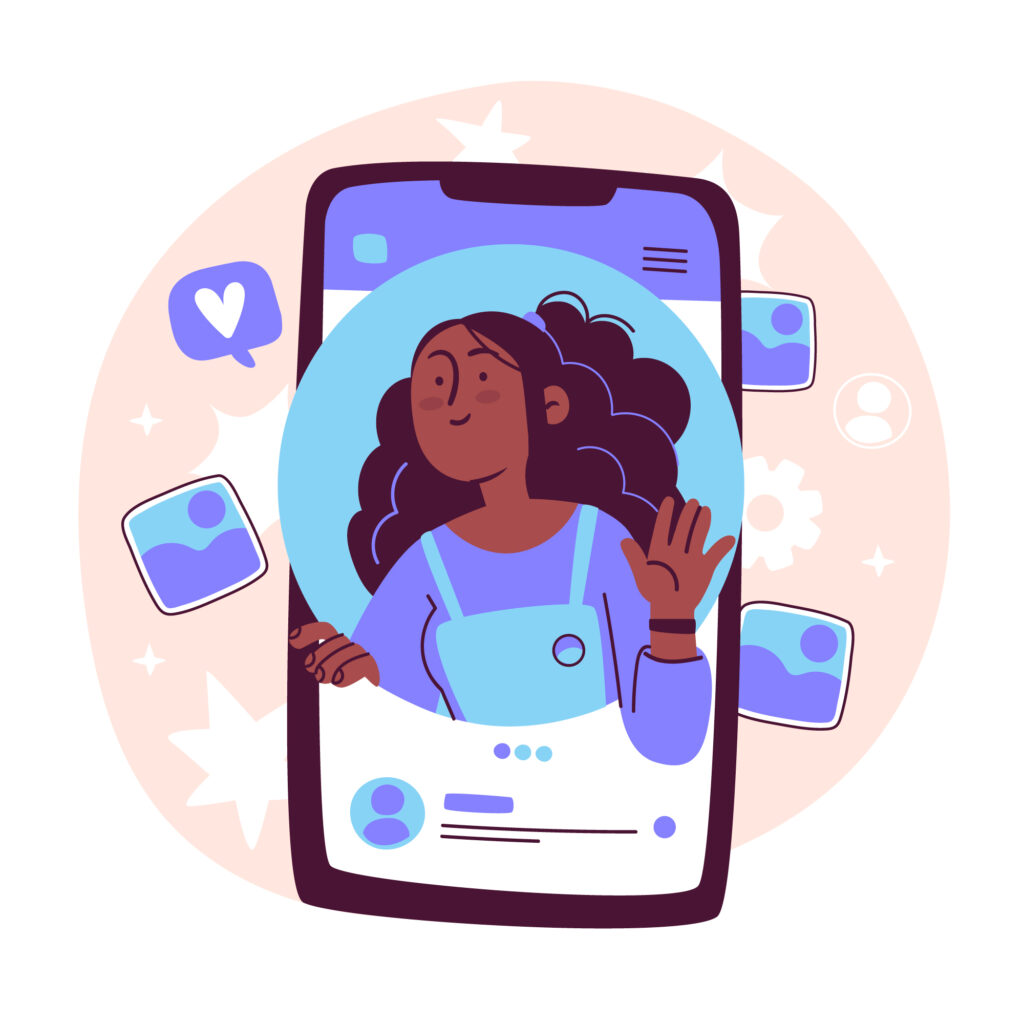Social Media’s Impact on Teen Mental Health
In June, US Surgeon General, Vivek Murthy, MD, called on Congress to issue a warning label for social media, similar to warning labels on alcohol and tobacco. He also called on Congress to quickly develop health and safety standards for technology platforms, including not collecting sensitive data from teens, and restricting features, like push notifications, autoplay, and infinite scroll, which contribute to excessive use of social media.

Dr. Vivek says that social media is an important contributor to the mental health crisis among young people. According to a fact sheet from the White House, the number of teens with depression more than doubled between 2011 and 2021. In 2021, 42% of high school students reported experiencing persistent feelings of sadness, including 57% of girls and 69% of LBTQ+ students, and nearly one in three high school girls reported having seriously considered suicide.
On average, teens spend 4.8 hours a day on social media. A 2019 study of 6,595 US teens found that those who spend more than three hours a day on social media may be at heightened risk for mental health problems, particularly for keeping their problems to themselves. In addition, 46% of teens say that social media makes them feel worse about their bodies.
How Parents and Teachers Can Protect Teens
Your child’s mental health doesn’t have to suffer, but you have to take a stand and set boundaries. Here are some suggestions from Dr. Vivek and others:
For parents
- Wait until middle school to allow children access to social media. The Wait Until 8th pledge suggests parents delay even longer, waiting to give children a smartphone until at least the end of 8th grade.
- Work together with other parents to establish shared rules.
- Work with teens to set a daily time limit for social media use.
- Create phone-free zones around bedtime, meals and social gatherings.
- Choose one day a month when no texting is allowed.
- As a parent, consider taking your own social media hiatus and enjoy the benefits of deleting social media.
- Set a limit on the number of apps teens can use.
- Keep phones out of the bedroom. Charge them in the kitchen overnight.
- Consider a “dumb” phone without internet access.
- Watch the film, The Social Dilemma, with your children.
- Read the report from Common Sense Media, “Getting Help Online: How Young People Find, Evaluate, and Use Mental Health Apps, Online Therapy, and Behavioral Health Information.”
- Read the report from Yale School of Medicine, “How Social Media Affects Your Teen’s Mental Health: A Parent’s Guide.”
- Sign the petition from Parents Together calling on Congress to approve Dr. Vivek’s health warning on social media.
For schools
- Teach children social media literacy.
- Ensure that classroom learning and social time are phone-free experiences.
- The day after Dr. Vivek’s warning, the Los Angeles Unified School District board of education voted to ban students from using smartphones during the school day.
For medical professionals and counselors
- Doctors, nurses, counselors, and other clinicians should raise the issue of social media with kids and parents and guide them toward safer practices.
For teens
- Join the LOG OFF Movement, created in 2020 by then high school senior, Emma Lembke, in response to her personal struggle with social media and its negative impact on her mental health, and to the absence of youth voices in the dialogue surrounding social media advocacy. The LOG OFF movement’s “Guide to Improve Screen Time” takes an in depth look at some tools to help improve screen time and be more productive.
- Use resources from Wired Human, which aims to protect children from online harm and exploitation through digital leadership training programs, research, and elevating the voices of youth to advance digital responsibility.
This is sobering information for parents, and it may seem impossible to curb your teens social media use in the face of their addiction to it. However, by using these resources and joining together with other parents and the teachers at your teen’s school, you can find the confidence to do what needs to be done to protect your child.
It’s up to you, and you can make a difference.
Additional Resources for Kids and Tech
Find practical tips on becoming a low-tech family.
Learn how to address technology addiction in kids.
Try some of these practical ways to set screen time limits.
Our tech can affect more than our mental health. There are physical detriments too. Find out how to prevent digital eye strain and tech neck.
And find out how unplugging can improve your mental health and why kids who spend more time in nature grow up happier and more well adjusted.
